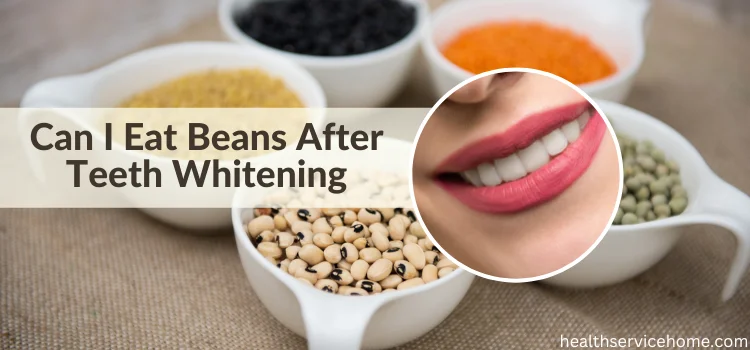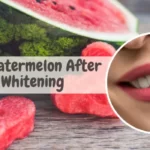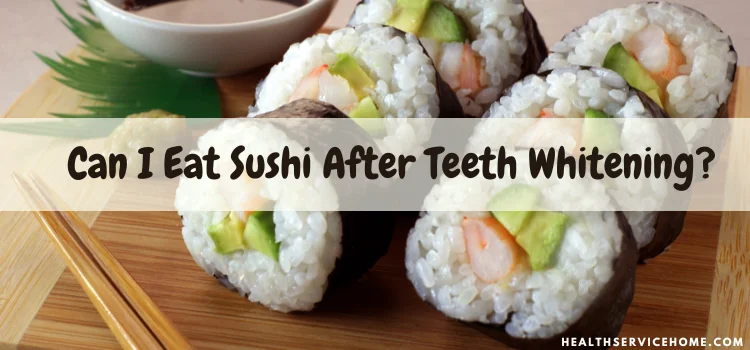After teeth whitening, It is generally safe to consume beans. Beans are not known to cause significant staining or discoloration of the teeth.
However, It’s important to note that immediately after the whitening procedure, Your teeth may be more susceptible to staining.
If you want to eat dark-colored beans, you should wait a few hours. Maintaining good oral hygiene practices, such as brushing and flossing frequently, can help preserve teeth whitening treatment results.
The Importance Of Your Oral Health.

Oral health is crucial in maintaining overall well-being and quality of life. It encompasses the health of the teeth, gums, mouth, and associated structures. Here are several vital reasons why oral health is important:
1. Preventing Tooth Decay.
Good oral hygiene practices, such as regular brushing, flossing, and dental check-ups, help prevent tooth decay.
Tooth decay occurs when bacteria in the mouth produce acids that attack the tooth enamel, leading to cavities.
Proper oral care can minimize the risk of tooth decay and the need for dental treatments like fillings, root canals, or extractions.
2. Gum Disease Prevention.
Neglecting oral health can result in gum disease, also known as periodontal disease. Gum disease begins with the inflammation and can progress to infection, causing gum recession, tooth loss, and even affecting overall health.
You can reduce the risk of gum disease by practicing good oral hygiene, including proper brushing and flossing techniques.
3. Fresh Breath.
Maintaining good oral health helps combat bad breath, also known as halitosis. Regular brushing, flossing, and tongue cleaning remove food particles, bacteria, and plaque, Contributing to unpleasant odors in the mouth.
4. Overall Health Connection.
Some systemic conditions have been linked to oral health. Research suggests poor oral health may contribute to an increased risk of cardiovascular disease, respiratory infections, diabetes complications, and adverse pregnancy outcomes. You must take care of your teeth.
Pros And Cons:
Pros
- Nutritional Benefits: Beans are a good source of protein, fiber, vitamins, and minerals. They can provide essential nutrients for your overall health.
- Low Risk of Teeth Staining: Beans are generally not known to cause significant staining or discoloration of the teeth, making them a relatively safe food choice after teeth whitening.
- Versatility: Beans come in various forms, such as kidney beans, black beans, chickpeas, and lentils, offering a wide range of options for incorporating them into your diet.
Cons
- Sensitivity: After teeth whitening, your teeth may be more sensitive. Consuming hard or chewy foods like beans immediately after the procedure could cause discomfort or irritation.
- Potential for Staining in Certain Cases: While beans are not known to be highly staining, Some types of beans, especially dark-colored ones like black beans, may have pigments that could contribute to teeth staining if consumed excessively.
- Considerations for Specific Whitening Procedures: If you’ve undergone an intensive teeth whitening treatment, Such as laser whitening, your dentist may advise you to avoid certain foods, including beans, for a brief period to allow the teeth to stabilize and reduce the risk of staining.
The Nutritional Value Of Beans.

Beans are a versatile and nutritious food option that offers various health benefits. There is a wide range of options, from black and kidney beans to chickpeas and lentils.
Beans are a great source of vitamins, minerals, and plant-based nutrition. They promote satiety, aid in digestion, and contribute to overall well-being.
Can I Eat Beans After Teeth Whitening? Here’s What You Need to Know.
It’s normal to watch what you eat after getting teeth whitening done to preserve your newly white teeth. You can feel good about eating beans since they are generally safe after tooth whitening.
There are a few things to take into account, though. Choose softer legumes, such as lentils or black beans, rather than more complex ones if your teeth are still sensitive after teeth whitening. Furthermore, be cautious while eating highly pigmented beans, such as kidney beans, as their dark color may cause tooth discoloration.
Seeking individualized guidance from your dentist regarding your teeth-whitening technique and oral health is always intelligent.
Maintaining dental health and enjoying a diverse diet must coexist in harmony. A post-whitening food plan may include beans. Just be careful to eat them in moderation and maintain good dental hygiene.
To reduce staining, rinse your mouth with water after eating and gently brush your teeth. You can still enjoy beans and keep your teeth bright and shining after tooth whitening by taking the proper precautions and making the correct decisions.
Are You Breaking the Rules or Staying on Track? Here’s What You Need to Know.
Navigating the fine line between pushing boundaries and adhering to established rules can be a delicate dance, especially regarding personal growth and self-discovery.
Many individuals grapple with self-doubt, often wondering whether their decisions align with societal norms or if they are veering off course.
Finding the right balance involves embracing uncertainty and acknowledging that there is no one-size-fits-all approach to success or fulfillment.
Beans And Their Potential Impact On Teeth.
While beans are generally considered beneficial for overall health, some varieties can impact tooth color and enamel.
Dark-colored beans, such as black and red kidney beans, have staining potential due to their pigmented compounds.
Additionally, like adzuki beans, sure beans contain natural acids that can contribute to enamel erosion if consumed excessively.
Can You Eat Beans After Whitening?
You can eat beans after teeth whitening without any issues. Teeth whitening treatments primarily focus on removing surface stains and lightening the appearance of your teeth.
It’s always a good idea to consume these foods in moderation and maintain good oral hygiene practices, such as regular brushing and flossing, to minimize staining and maintain the effects of teeth whitening. If you have any concerns, it’s best to consult with your dentist for personalized advice.
Guidelines For Eating Beans After Teeth Whitening.
To enjoy beans without compromising your teeth-whitening results, consider the following guidelines:
1. Wait Time After The Whitening Procedure.
It is advisable to wait at least 48 hours after your teeth whitening procedure before consuming beans or any potentially staining foods. This allows the enamel to settle and reduces the risk of immediate staining.
2. Moderation And Portion Control.
Incorporate beans into your diet in moderation. Practice portion control to minimize the exposure of pigmented compounds to your teeth. Remember, It’s not just the color of the food but also the frequency and duration of exposure that can affect your teeth.
3. Rinsing The Mouth After Consuming Beans.
After enjoying a meal with beans, rinse your mouth with water or an alcohol-free mouthwash. This helps remove any food particles and reduces the chances of staining.
Alternatives To Consider.
If you’re concerned about the staining potential of sure beans, you can opt for non-staining alternatives, such as white beans, navy beans, or cannellini beans.
These varieties have a lighter color and are less likely to leave visible stains on your teeth. Additionally, You can explore other protein-rich options like tofu, tempeh, or lean meats to diversify your diet while maintaining oral health.
How To Whiten Your Teeth at Home.

You can try several methods at home to help whiten your teeth. Here are some standard techniques:
1. Whitening Toothpaste.
Choose a toothpaste specifically designed for whitening teeth. These toothpastes contain mild abrasives or chemical agents that help remove surface stains.
2. Whitening Strips Or Gel Trays.
Over-the-counter whitening strips or gel trays are available at most drugstores. These products contain a bleaching agent (usually hydrogen peroxide) applied to the teeth and left on for a specified period. Follow the instructions provided with the product.
3. Baking Soda And Hydrogen Peroxide.
Create a paste by mixing baking soda with hydrogen peroxide. Apply the paste to your teeth and let it sit for a few minutes before rinsing. Be cautious not to use this method too frequently, as excessive use can damage tooth enamel.
4. Oil Pulling.
Swishing a tablespoon of coconut or sesame oil in your mouth for 10-15 minutes is believed to help remove plaque and surface stains.
Spit the oil into a trash can (not the sink) and rinse your mouth thoroughly afterward.
5. Avoid Stain-Causing Foods And Beverages.
Minimize consuming highly pigmented foods and beverages like coffee, tea, red wine, berries, and deeply colored sauces, as they can stain your teeth. If you consume them, rinse your mouth or brush your teeth afterward.
6. Maintain Good Oral Hygiene.
Brush your teeth at least twice daily with fluoride toothpaste, floss daily, and use mouthwash to help remove surface stains and prevent plaque buildup.
Conclusion.
Eating beans after teeth whitening is generally safe and offers nutritional benefits. While there is a low risk of staining, It’s essential to be mindful of immediate post-whitening sensitivity and the potential staining properties of specific beans.
Following the guidance of your dentist or dental professional regarding post-whitening care will help maintain the results of your teeth whitening treatment.
Frequently Asked Questions.
A Blogger, Author and Researcher! Gohar Aalam is recognized as a full-time blogger for Health and Tech Niches. I’m a Fountainhead of Healthservicehome.com, will provides high quality knowledge.









1 thought on “Can I Eat Beans After Teeth Whitening? Are You Breaking the Rules or Staying on Track? | 2024.”